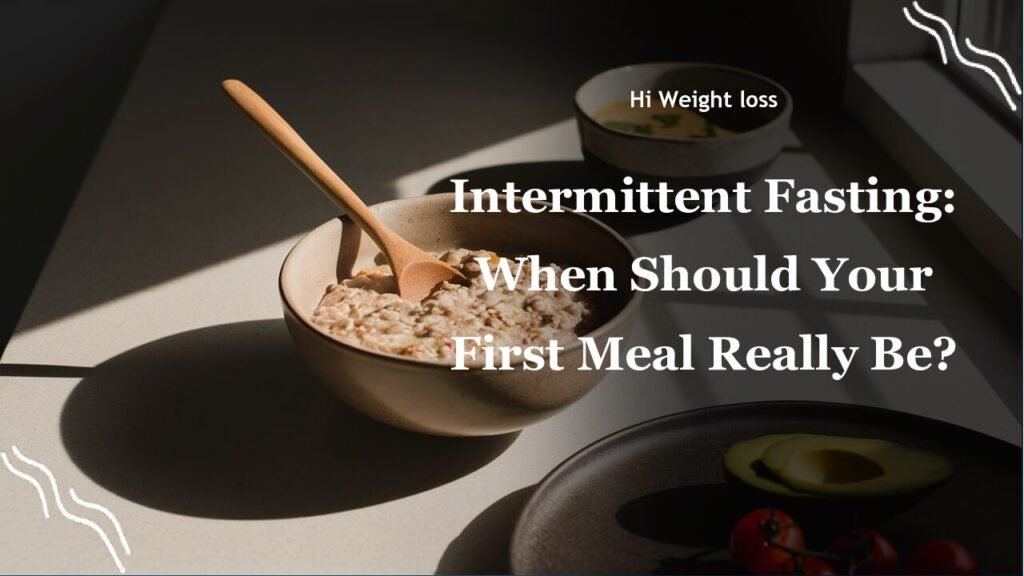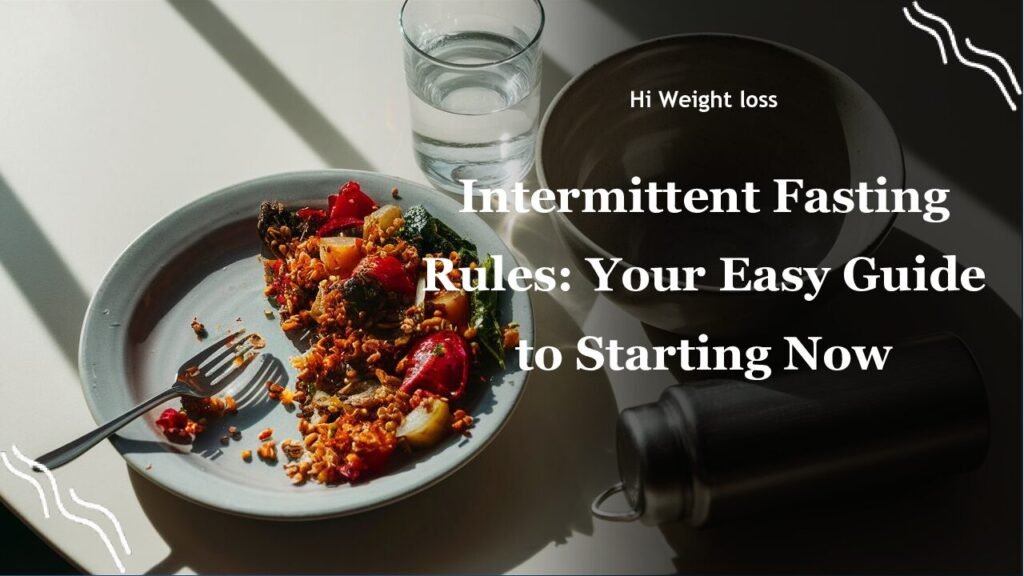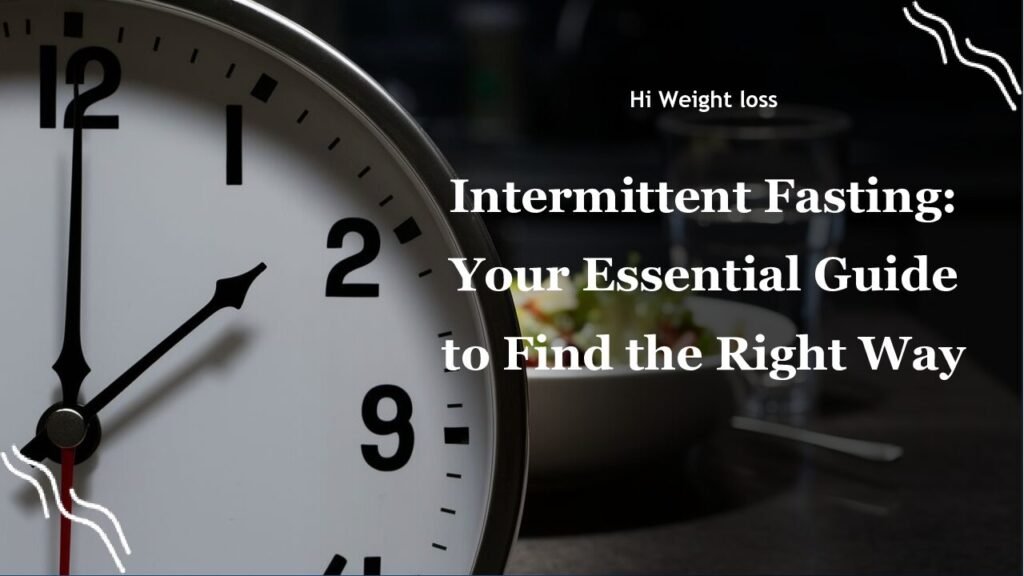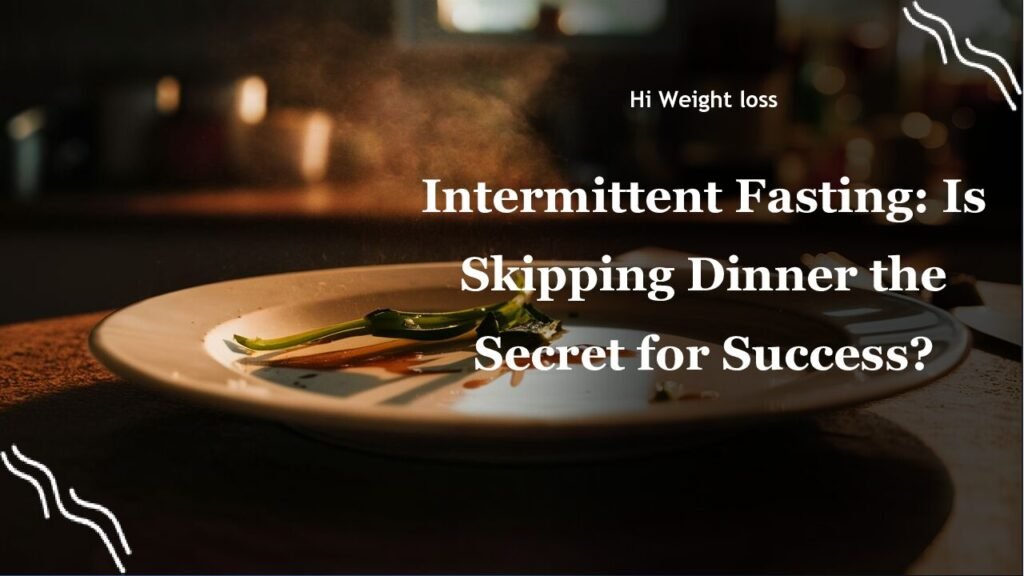Are you struggling to figure out the best time for your first meal while practicing intermittent fasting? It’s a common question, and honestly, the answer isn’t a simple one-size-fits-all solution. Trying to find the perfect _when_ can feel like navigating a maze of conflicting advice. This article will guide you through the various intermittent fasting schedules and help you determine the optimal time for your first meal, using real-life experiences and expert advice to make this journey easier for you.
When Should My First Meal Be When Intermittent Fasting?
Understanding Intermittent Fasting Schedules
Intermittent fasting isn’t about _what_ you eat, but rather _when_ you eat. It’s about cycling between periods of eating and voluntary fasting on a regular schedule. The goal is to give your digestive system a break. For many, this means cutting out breakfast, but that’s not the only option.
Let’s dive into a few popular approaches. These schedules will help you see how varied the timing of your first meal can be.
Beginner’s Intermittent Fasting: The 8-Hour Eating Window
If you’re new to intermittent fasting, an 8-hour eating window is a great starting point. Typically, this could be from 8 a.m. to 6 p.m., making your first meal around 8 a.m. and your last at 6 p.m. This is often seen as the least restrictive method, and therefore easier to adhere to. MindBodyGreen provides a clear guide on this method, noting its suitability for beginners.
I remember when my friend Sarah started intermittent fasting, she chose this method. She told me it was great as she didn’t have to drastically change her routine, and found it easier to not have breakfast than to skip dinner. This schedule eased her into the practice without much stress.
Stepping Up: The 18-Hour Fast
For those who want to increase their fasting period, the 18-hour fast is a popular choice. With an 18-hour fast, you would eat within a 6-hour window, typically from 12 p.m. to 6 p.m. Your first meal would then be around 12 p.m. and your last meal at 6 p.m. Season Health’s blog offers more insight into this method, explaining how the extended fasting period can amplify the benefits.
My colleague John tried the 18-hour method, initially struggling with not eating until midday. But, after a couple of weeks, he found that he felt more energized in the mornings and was no longer bothered by mid-morning hunger pangs.
The Popular 16:8 Method
The 16:8 method is another common schedule. It involves a 16-hour fast and an 8-hour eating window. Typically, this window could be from 12 p.m. to 8 p.m. With this schedule, your first meal is around 12 p.m. and the last is by 8 p.m. It’s quite flexible and easy to adjust according to your personal schedule. Many find this a balanced approach, and it is a stepping stone to longer fasting periods.
I personally have used this method, and I find that eating my first meal at 12pm works very well with my lifestyle, as it allows me to have dinner with my family at around 7pm. This is just an example of the flexibility this approach provides.

Flexibility is Key: Adapting to Your Life
Remember, the timing of your first meal isn’t set in stone. You can adjust it based on your daily routine, work schedule, and preferences. Some individuals find it easier to have their first meal later in the day, while others prefer a slightly earlier start. For example, you could choose an 8-hour eating window between 11 a.m. and 7 p.m., meaning your first meal would be at 11 a.m. Levels’ blog emphasizes the importance of adjusting your meal times to what works best for you.
I’ve found that on weekends, I tend to push my first meal back a bit, enjoying a more relaxed morning. It shows that intermittent fasting can be personalized to fit your lifestyle. This flexibility is one of its most appealing factors.
What’s The Ideal Time?
The truth is, there is no single “ideal” time for your first meal when intermittent fasting. What works for one person may not work for another. The best time for _your_ first meal depends on your personal preferences, schedule, and how your body responds to different timing. It’s all about experimenting to see what fits your rhythm and provides the results you’re looking for.
Below is a table summarizing some common intermittent fasting schedules.
| Schedule | Fasting Window | Example Eating Window | Approximate First Meal | Approximate Last Meal |
|---|---|---|---|---|
| Beginner (8-hour eating window) | 16 hours | 8:00 AM – 6:00 PM | 8:00 AM | 6:00 PM |
| Intermediate (18-hour fast) | 18 hours | 12:00 PM – 6:00 PM | 12:00 PM | 6:00 PM |
| 16:8 Method | 16 hours | 12:00 PM – 8:00 PM | 12:00 PM | 8:00 PM |
| Flexible (8-hour window) | 16 hours | 11:00 AM – 7:00 PM | 11:00 AM | 7:00 PM |
Conclusion
In summary, the question of when you should have your first meal during intermittent fasting depends largely on the schedule you choose and your personal preferences. There’s no magic time that works for everyone. Whether you’re a beginner following an 8-hour eating window starting at 8 a.m., someone trying the 18-hour fast with a first meal at noon, or you prefer the popular 16:8 method with the first meal at 12 p.m., the most important thing is to find a schedule that fits seamlessly into _your_ life. Remember Sarah’s ease with her routine, John’s increased morning energy, and even my weekend adjustments, highlighting the need for a personalized approach.
So, experiment with different timings, pay attention to how your body responds, and don’t be afraid to adjust your schedule as needed. Remember, intermittent fasting is not a rigid rule; it’s a flexible tool that can be tailored to your needs. Now it’s your turn – share your experiences with intermittent fasting and let us know what meal timing has worked best for you.
FAQ
Can I change my first meal time every day?
While some flexibility is okay, consistency is key to building a sustainable fasting routine. Changing the start of your eating window every day can make it harder for your body to adjust. Aim to stick to the same time frame most days.
What if I’m hungry before my scheduled first meal?
It’s normal to feel hungry, especially when starting. Ensure you are well-hydrated and try to engage in activities that distract you. If the hunger becomes unbearable, re-evaluate your chosen eating window. It might not be the best fit for you.
Is it okay to workout before my first meal during intermittent fasting?
Yes, many people find that working out in a fasted state can be beneficial. However, it’s important to listen to your body. If you feel weak or dizzy, you should eat something. Adjust based on your performance.



